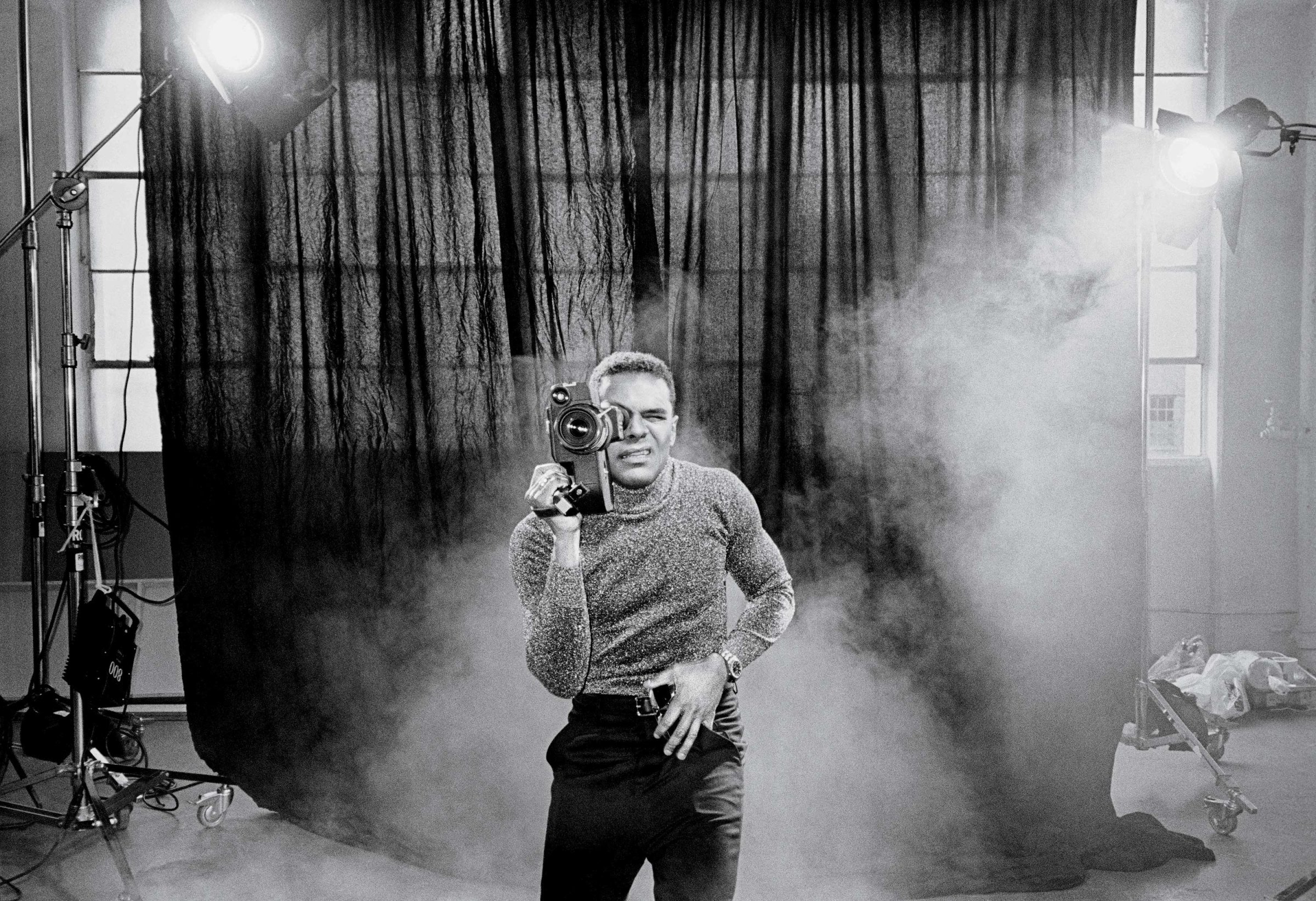
The R&B singer Maxwell won’t name names, but he can’t hide his frustration with a certain defining pop star. “You’re a tall, beautiful woman with the hair and the wind machine and you’re singing about being the baddest girl in the world?” he says. “This is your ego talking. And I don’t believe ego connects with creativity.” It doesn’t take a pop scholar to guess the identity–are you listening, Beyoncé?–but he hardly needs to pin the critique on any one person. From the multitudes of “female empowerment” singers, like Taylor Swift and Katy Perry, to self-absorbed hip-hop stars like Kanye West and Drake, Maxwell says, “They’re not speaking in terms of vulnerability, of fear.”
Which only makes the sensitivity and nuance of Maxwell’s new album blackSUMMERS’night, out July 1, that much more notable. A little more than 20 years after the release of his debut, Maxwell’s Urban Hang Suite–which, along with the first albums of Erykah Badu and D’Angelo, spurred the neo-soul movement–he shows exponential innovation, integrating jazz, indie rock and folk to create his own progressive soul. His new music may be more aggressive than his airy, early pieces, but it remains braggadocio-free, a rare quality from one of R&B’s top sex symbols.
Maxwell’s relative humility has been a factor since Urban Hang Suite, when his face didn’t appear on the album’s cover. (On the new album, he hides his face in his hand.) “I’m not trying to market myself,” he says. “I really care what you think about the song.” He cares so much that he spent seven years working on the new album, nearly matching the eight years it took for him to release 2009’s BLACKSummers’night. He faults “full-on anxiety–just wanting to live up to what I’ve done before” for the long gaps. “It’s like chipping away at a rock,” he adds. “My friends are like, ‘Stop chipping! You’re taking away from the thing you’re trying to make!'”
The delays haven’t kept his fans from snatching up anything he records. Each of his five albums has gone platinum, yet he has determinedly kept his operation small. Unlike the pop singers who employ as many as a dozen writers on a single song, he still writes almost all of his songs (under the pen name MUSZE) with longtime collaborator Hod David. The two met back when the Brooklyn-raised singer worked as a waiter at the downtown New York City restaurant Coffee Shop. He also eschews superstar producers, co-producing every album himself with David. “I don’t have a machine,” he says. “I’ve always been into the whole mom-and-pop thing.”
At 43, one of music’s great lover men has never married. (“My family has a bad track record of being able to be in really successful relationships.”) Yet he writes about love with an awe that suggests divinity. The new song “III” name-checks Michelle Obama as his ideal woman. “When I think what he went through as a President and what it took for her to be there for him, there’s nothing greater,” he says.
As an artist, he seeks similar fidelity. “I always ask myself, ‘Is this something Marvin would do? Is this something Sade would do?’ From the start, I asked, ‘Can I sing this song at 80?’ That’s something most people do not ask themselves at 22 or 23. But music should last. To me, lasting is everything.”
More Must-Reads from TIME
- Cybersecurity Experts Are Sounding the Alarm on DOGE
- Meet the 2025 Women of the Year
- The Harsh Truth About Disability Inclusion
- Why Do More Young Adults Have Cancer?
- Colman Domingo Leads With Radical Love
- How to Get Better at Doing Things Alone
- Michelle Zauner Stares Down the Darkness
Contact us at letters@time.com